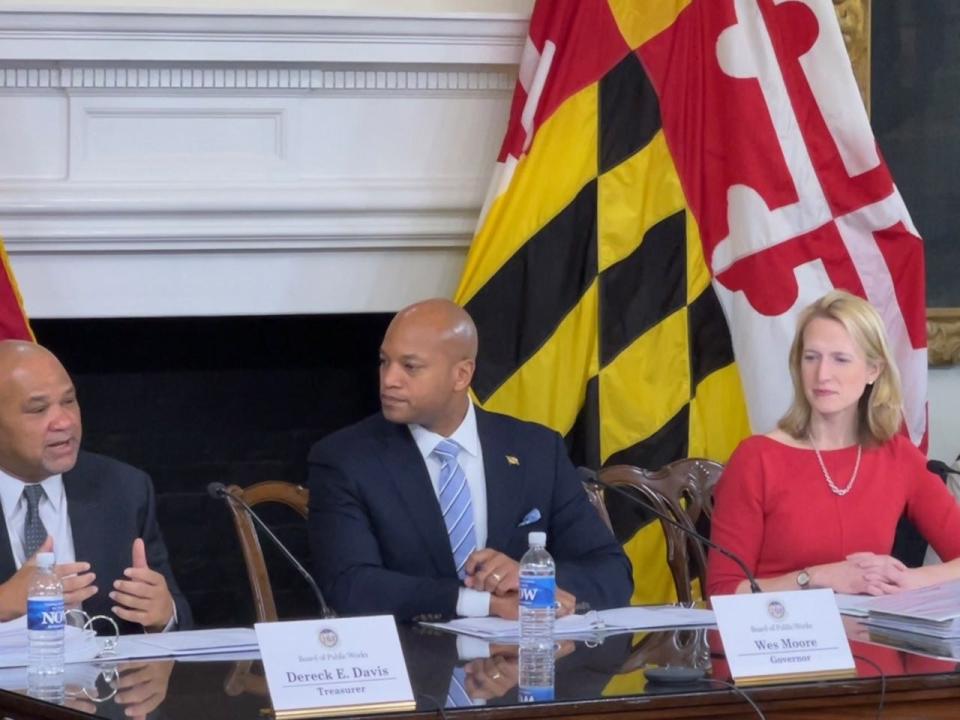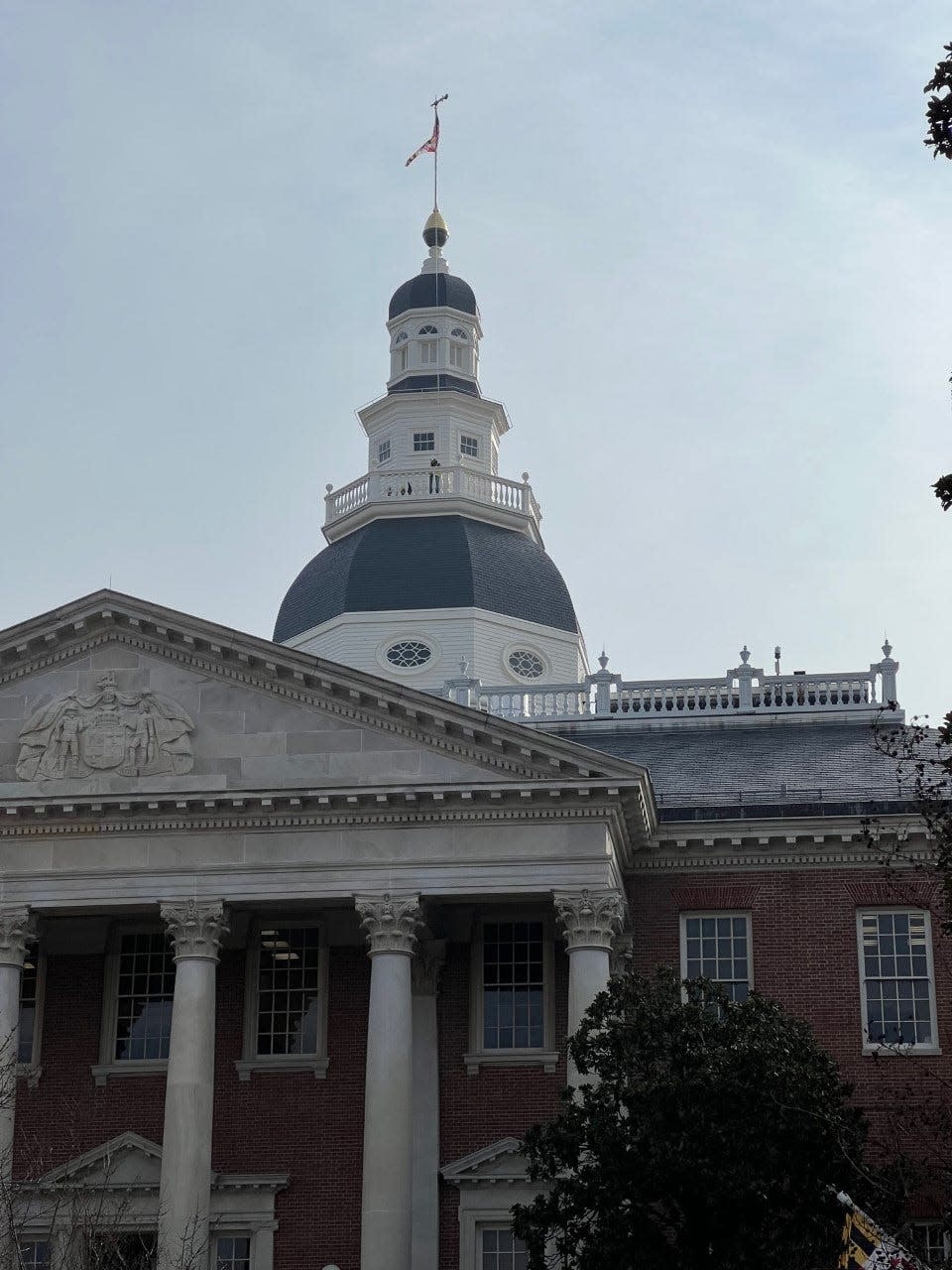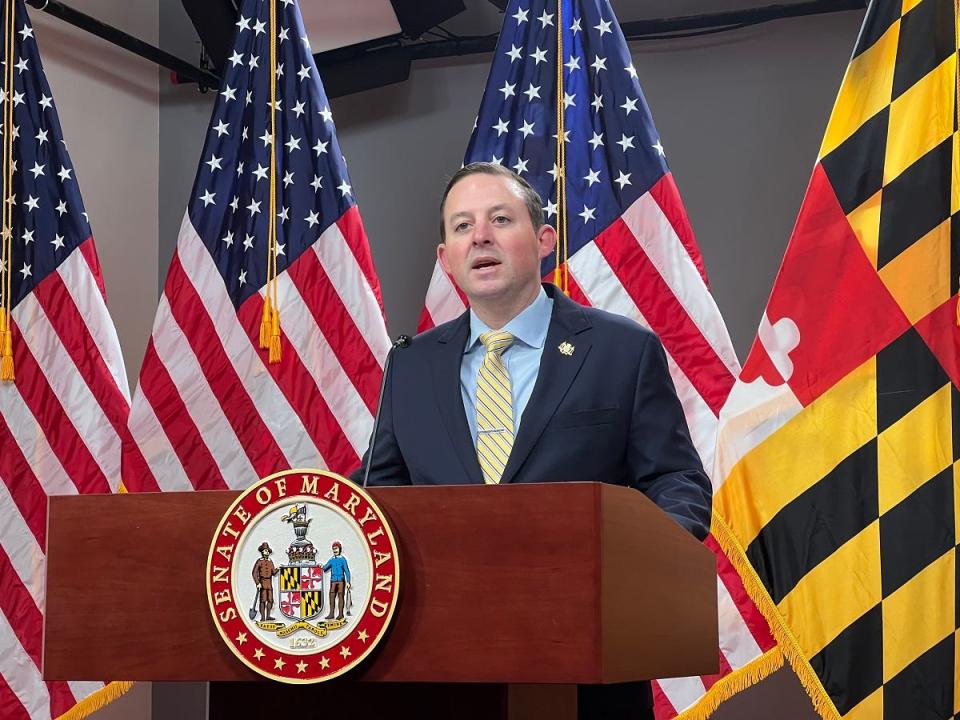Court hearing held on tax to make Facebook, Google, other big tech pay for MD education
As schoolchildren in Maryland returned to their classrooms this month, a case regarding how their education will be funded returned to the courtroom Wednesday, resuming the controversy over how large, lucrative technology companies should contribute to the state’s education system.
Judges in the U.S. Court of Appeals for the Fourth Circuit heard arguments in Chamber of Commerce of the United States, et al. v. Brooke E. Lierman. Lierman, the state’s comptroller and tax collector, inherited the title of defendant in the case from her predecessor Peter Franchot, the comptroller when the General Assembly passed the law in question in 2021 and the litigation began.
“The purpose of this legislation is to raise money for education, public school education, in Maryland,” said Julia Doyle Bernhardt, an assistant Attorney General in Anthony Brown's office, arguing the case on behalf of the state before the court based in Richmond, Va. Lierman, for her part, was at the State House in Annapolis on Wednesday morning, fulfilling her role as a member of the Board of Public Works.
More: Maryland test scores rebound post-pandemic, but here's where there's more work to do

The law, which taxes the digital advertisements of businesses making over $100 million annually, was allowed to proceed earlier this year after the state’s Supreme Court reversed an Anne Arundel County Circuit Court decision that had struck down the law. The state collected over $50 million from the tax for the education fund during just one quarter of fiscal year 2022.
The Supreme Court of Maryland’s May action allowed the federal case, which had been paused because of the ruling in Anne Arundel County Circuit Court, to resume.
Payments, too, have continued as the state has collected $128,113,256.22 from the digital advertising gross revenue tax in fiscal years 2022 and 2023 (which ended on June 30), according to a spokesperson from the comptroller’s office. A form for payment of the tax during calendar year 2023 is available on the comptroller’s website.
Federal case on Maryland law heard in Richmond, Va.
Tara Morrissey, senior vice president and deputy chief counsel at the U.S. Chamber of Commerce Litigation Center, said in a statement that the state’s tax may affect small companies.
“Imposing a surcharge on digital advertising services could make it more expensive for small businesses to use this important marketing tool and drive out online-based businesses that offer these services,” said Morrissey in an email sent during the oral arguments that could be heard online.
In an email, a spokesperson for the comptroller said: “We have no comment on litigation.”
In a statement after the Maryland Supreme Court's decision in May, Attorney General Anthony Brown said: “The digital ad tax will support our collective goal of transforming schools across the State."
Michael Kimberly, an attorney for McDermott Will & Emery, a D.C.-based law firm, arguing for the U.S. Chamber of Commerce and other appellants, asked in a July court filing for the court to resolve “the merits of their challenges” of the tax, including a First Amendment claim.
Wrapping up his argument in court on Wednesday, he pressed that the lawmakers’ motivation for the legislation should be considered in the case.

“The lawmakers who are responsible for the statute,” he said, “make very clear that, in their view, these companies, what they perceive to be their bad conduct has caused externalities that require remediation.”
Lawmaker's objective for the law
The law, which was passed months before Facebook whistleblower Frances Haugen said on the news program 60 Minutes that the company chose “profit over safety,” was deemed to be a tax on “big tech” by bill sponsor Maryland Senate President Bill Ferguson in a post upon passage in February 2021. In the statement, posted on Facebook, he cited Amazon, Facebook and Google, specifically.
That year, 2021, Meta, formerly known as Facebook Inc. and also the owner of Instagram, made about $85 billion in global revenue and Alphabet, the parent company of Google, made more than twice that much that year with at least 80% coming from displaying ads.

Earlier this year, in a news conference in the lounge off the Maryland Senate floor, Ferguson again stated his objective for the law.
“Major platforms that benefit from the long-term education of people should be contributing to that education system,” he said.
On Wednesday, Kimberly asked for a remand — to send the case back to a lower court.

RECAP: As Tax Day nears, future of digital ad tax, designed to fund schools, remains uncertain
Dwight A. Weingarten is an investigative reporter, covering the Maryland State House and state issues. He can be reached at dweingarten@gannett.com or on Twitter at @DwightWeingart2.
This article originally appeared on Salisbury Daily Times: Maryland's digital ad tax has day in federal court

